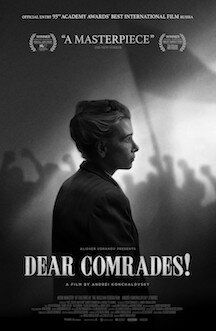Direction: Steven Soderbergh
Country: USA
Directed by Steven Soderbergh and boosted by the performances of a creditable trio of screen divas - Meryl Streep, Diane Wiest and Candice Bergen - Let Them All Talk is an innocuous Woody Allen-esque dramedy that seems more interested in conversational gambits than really creating any sort of tension or conflict.
Streep commands the screen as Alice Hughes, a celebrated author who tries to reconnect with two old university friends - Roberta (Bergen) and Susan (Wiest) - by inviting them to a cruise trip to the United Kingdom, where she will receive the coveted Pulitzer Prize. The occasion was arranged by her literary agent, Karen (Gemma Chan), who secretly infiltrates aboard the Queen Mary 2 as she tries to figure out what Alice’s new book is about. In order to do that, she persuades the writer’s young nephew, Tyler (Lucas Hedges), to provide her with all the information she keeps in secrecy.
Without feeling necessarily staged, the film is always talky, occasionally engaging and often manipulative. The unexpected finale elevates the material a tiny bit, but the road that leads there remains conventionally undeviating. The problem with this film is that some scenes really work, but some others don’t.
The slowly emerging details about the characters and their relationships keep us going, but both Soderbergh, who competently handles the photography with natural light, and the screenwriter Deborah Eisenberg could have used more mordant tones and humor to pepper it. It’s a pragmatic yet rippling navigational episode rescued by the performances.








































